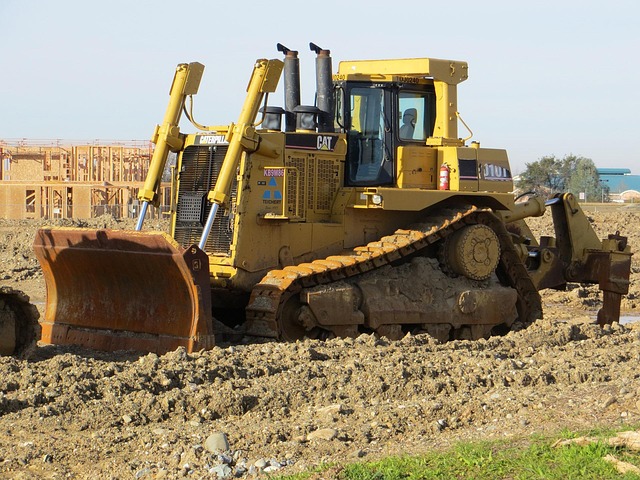TL;DR:
Basement leveling addresses structural issues caused by soil conditions, construction flaws, or shifting weight, improving homes' integrity and value. Foundation contractors use advanced assessments and techniques like underpinning, concrete injection, or slab jacking to stabilize basements. This prevents future repairs, enables better space planning, and increases property value. Costs vary based on foundation condition, basement size, chosen method, access, and local factors. Selecting experienced, certified Foundation Contractors with warranties and transparent pricing ensures successful results. Post-leveling maintenance includes dehumidification, regular inspections, cleaning, sealing cracks, and humidity control to avoid future problems.
Basements, often overlooked, can become a source of frustration with uneven floors. This is where basement leveling comes in—a process that corrects structural issues and restores your home’s lower level. Understanding what this entails is crucial for any homeowner facing this challenge. In this comprehensive guide, we’ll explore common causes of basement unevenness, the expertise offered by foundation contractors, various leveling techniques, and the significant benefits a leveled basement brings. Learn how to navigate costs and select the right contractor, ensuring long-lasting results with proper post-leveling care.
Understanding Basement Leveling: What It Entails

Basement leveling, or foundation settlement correction, is a process that addresses the uneven or sinking floors in a basement or crawl space. This common issue arises due to various factors like soil conditions, improper construction, or shifting weight above the structure. Foundation contractors use specialized techniques and materials to stabilize and level the basement, ensuring structural integrity and preventing further damage.
The process involves assessing the problem through detailed inspections and using advanced technology to determine the extent of settlement. Contractors then employ methods such as underpinning (adding support beams below the foundation), foundation wall adjustment, or the injection of a lightweight concrete mix to raise and stabilize the basement levels. This not only improves the structural soundness but also provides additional living space, increases property value, and prevents costly repairs in the future.
Common Issues Leading to Basement Unevenness

Basement unevenness is a common issue that many homeowners face, often requiring the expertise of foundation contractors to address. Several factors contribute to this problem, with some of the most prevalent being soil settlement and shifting, poor initial construction, and underground water pressure. Over time, these factors can cause significant cracks in the foundation walls and floors, leading to uneven surfaces.
Soil composition plays a crucial role in basement leveling, as different types of soil settle at varying rates. Clay-rich soils, for instance, are highly expansive, meaning they swell when absorbing water and contract during dry spells, putting immense pressure on basement structures. This process can result in noticeable dips or bumps in the basement floor, compromising its overall stability and aesthetics. Poor initial construction practices, such as inadequate foundation support or improper grading around the exterior of a home, can also contribute to long-term basement unevenness.
The Role of Foundation Contractors in Basement Leveling

When considering basement leveling, the role of foundation contractors cannot be overstated. These professionals are the experts in diagnosing and correcting issues related to uneven or sunk basement floors. They bring a wealth of knowledge and experience, utilizing advanced techniques and technology to assess the problem and devise effective solutions. Foundation contractors play a pivotal role in ensuring that any leveling process is not just temporary but provides long-lasting results.
Their expertise extends to various methods, from traditional concrete lifting to modern polymer injection. By understanding the underlying causes of basement settling or sinking—such as soil conditions, improper initial construction, or ground water levels—contractors can select the most suitable and cost-effective approach for each unique situation. Engaging a skilled foundation contractor is thus the first step towards achieving a levelled and stable basement that enhances the functionality and value of your home.
Techniques Used for Effective Basement Leveling

Basement leveling is a process that involves correcting the structural integrity and level of a basement, addressing any unevenness or sinking. Foundation contractors employ several effective techniques for this purpose, each tailored to specific needs. One common method is slab jacking, where hydraulic jacks are used to lift and level concrete slabs. This technique is particularly useful for minor settlement issues and can be performed with minimal disruption to the basement floor.
Another widely used approach is mudjacking, which involves mixing a thick slurry of concrete, water, and sand and pumping it into voids or cracks beneath the foundation. As the material expands, it helps to fill gaps and level the basement floor. This method is effective for more severe settlement problems, but it requires careful planning and execution to ensure the slurry reaches the targeted areas without causing further damage. Foundation contractors often combine these techniques with other methods like piering or heaving, depending on the unique challenges presented by each basement.
Benefits of a Levelled Basement for Homeowners

A levelled basement offers numerous advantages for homeowners, significantly improving their living spaces and overall property value. One of the key benefits is enhanced structural integrity. Foundation contractors can help fix uneven floors, cracks, and dips, ensuring your basement is secure and stable. This is crucial as a solid foundation is the backbone of any home, and addressing basement leveling issues early can prevent more severe structural damage in the future.
Additionally, a levelled basement provides better functionality and comfort. It allows for more flexible space planning, enabling homeowners to transform the basement into livable areas such as recreational rooms, offices, or even additional bedrooms. With proper leveling, you can say goodbye to awkwardly placed furniture and unstable walls, creating a comfortable and inviting environment below grade.
Factors Influencing Basement Leveling Cost

Several factors determine the cost of basement leveling, which can vary widely depending on the project’s scope and complexity. One significant influencer is the condition of the existing foundation. If there are signs of structural damage, such as cracks or uneven surfaces, repairs may be needed before leveling, adding to the overall expense. The size and layout of the basement also play a role; larger areas require more materials and labor, thereby increasing costs.
The type of leveling technique chosen by foundation contractors is another critical consideration. Different methods, like slab jacking, piering, or full foundation repair and replacement, have varying price points. Additionally, access to the basement can impact costs, as confined spaces might necessitate specialized equipment and techniques, driving up charges. Weather conditions and local labor rates can also influence pricing, as construction projects often face cost adjustments based on these factors.
Choosing the Right Foundation Contractor: Tips and Considerations

When considering residential basement leveling, selecting the right foundation contractor is a pivotal step. Look for professionals with extensive experience in basement repairs and stabilization, preferably certified by reputable organizations. Check their portfolio to assess the quality of their work and read client reviews to gauge their reliability and customer satisfaction levels. Inquire about warranties or guarantees offered on their services and materials used, as this ensures long-term peace of mind.
Before hiring, discuss your specific needs and budget openly. Reputable foundation contractors should provide transparent estimates, breaking down costs for inspection, repair, and leveling methods employed. They should also offer various financing options to make the process more accessible. Ensure clear communication throughout the project to manage expectations and address any concerns promptly. Choosing a contractor with integrity and a proven track record is key to achieving successful basement leveling results.
Post-Leveling Care: Maintaining Your Levelled Basement

After successfully leveling your basement, proper care and maintenance are essential to ensure longevity and prevent future issues. One of the primary steps is to maintain proper humidity levels. High moisture content can lead to mold growth and damage to the structure. Foundation contractors recommend investing in a quality dehumidifier, especially during the humid summer months. Regular inspection is another crucial aspect; check for any signs of water seepage, cracks, or structural shifts immediately after leveling and periodically thereafter.
Quick action on any issues detected can save you from costly repairs down the line. Additionally, keeping the basement floor clean and free from debris will make it easier to spot potential problems early on. Many foundation contractors suggest sealing any gaps or cracks around pipes, wiring, or other penetrations to prevent water intrusion. Regular maintenance not only preserves the integrity of your leveled basement but also ensures a healthy living environment for you and your family.
